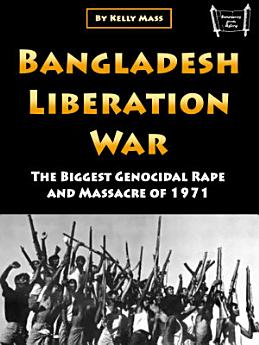Bangladesh Liberation War: The Biggest Genocidal Rape and Massacre of 1971
About this ebook
The language controversy that erupted in the early years of Pakistan's existence revealed the fundamental tensions between the Bengali-speaking majority in East Pakistan and the Urdu-speaking elite who dominated the new nation's political and military establishment. When Pakistan's founder Muhammad Ali Jinnah declared in 1948 that Urdu would be the sole state language of Pakistan, he ignited protests throughout East Bengal where Bengali was spoken by over 98 percent of the population. The language movement that emerged in response to this declaration became the first major expression of Bengali nationalism within Pakistan and established patterns of resistance that would eventually culminate in the independence struggle of 1971.
The economic exploitation of East Pakistan by the West Pakistani establishment created deep grievances that fueled the growing independence movement throughout the 1950s and 1960s. Despite contributing the majority of Pakistan's foreign exchange earnings through jute and tea exports, East Pakistan received only a fraction of development spending and was systematically excluded from key industries and infrastructure projects.







